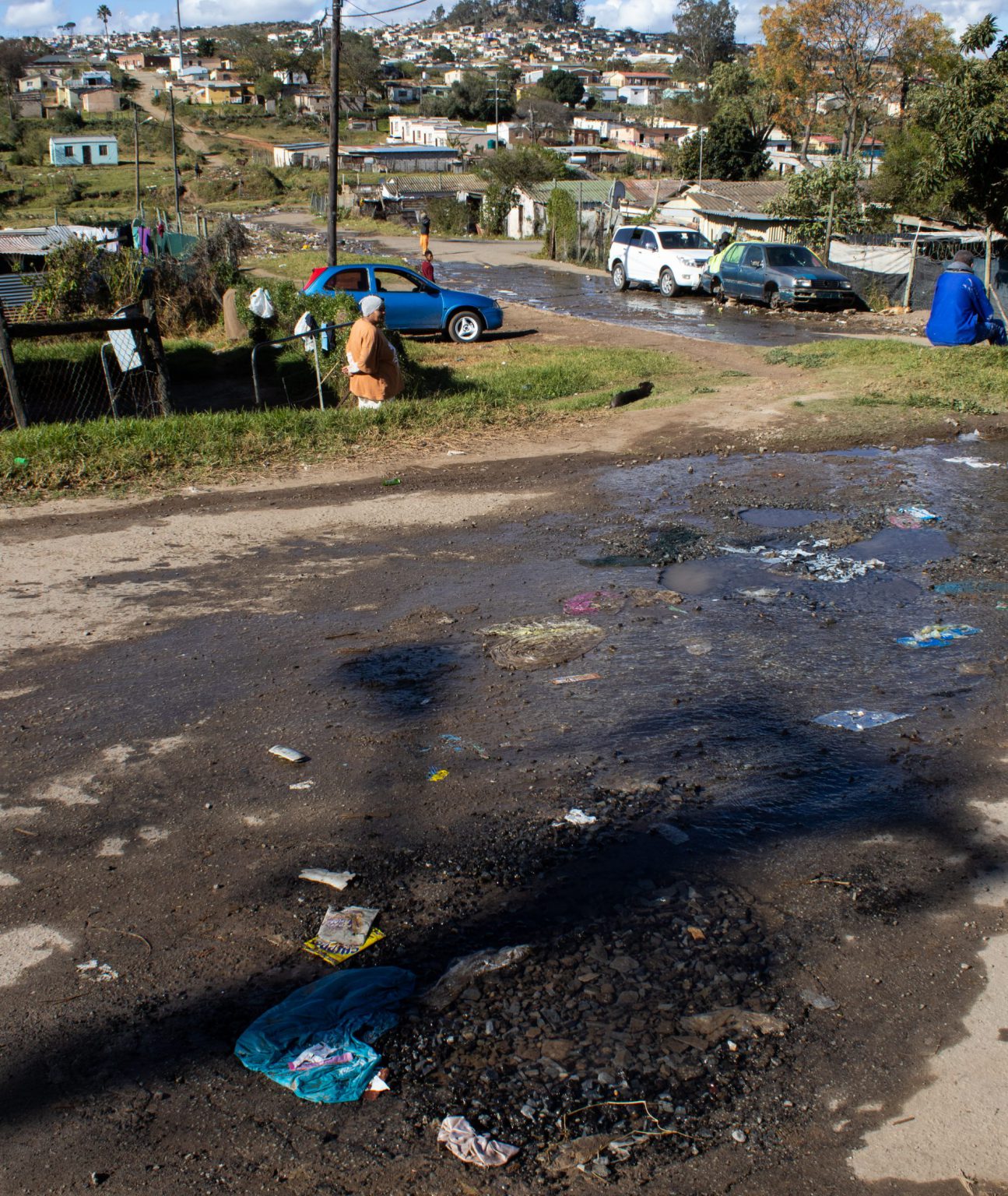By Rikie Lai
Phase 2 of the R393-million upgrade of the James Kleynhans Water Treatment Works (JKWTW) at the Glen Melville Dam on the city’s eastern side was finally completed on 16 July 2024.
The completion date was at least seven years behind its initial completion deadline in 2017. The project was further delayed despite high-profile interventions in 2022 by a Cooperative Governance and Traditional Affairs (COGTA) oversight committee.
According to Amatola Water’s acting communications manager, Amanda Skritch, the plant’s capacity to treat and pump water has jumped from 12 megalitres a day (ML/d) to 20 ML/d through the completion of this phase of the project.
With the 8 ML/d pumped from Settlers Dam, Makhanda now has access to 28 ML/d – more than enough to satiate the city’s water needs indefinitely.
So, why does Makhanda still not have an uninterrupted water supply?
Makana Municipality was unable to respond to this query this week.
Last week, on 31 July, Makana spokesperson Anele Mjekula said that once upgrades to the James Kleynhans Water Treatment works had been completed, “the water supply will be open without any interruptions; this will assist in dealing with the leaks”.
Mjekula’s statement was provided two weeks after Amatolo Water confirmed the completion of the JKWTW. This contradictory information implies that Amatolo Water and the Makanda Municipality were not communicating.
Without full information from Makana Municipality, we can only speculate that we do not have an uninterrupted water supply because our battered and dilapidated water infrastructure is unable to receive 28 ML of treated water daily. Or that Makana Municipality is trying to cut its electricity bill by pumping for a daytime-only supply?
Active Ward 4 citizen Harry Porthen said some leaks had been unattended for over six months. There are large standing open bodies of water, such as the ones on Seymour Street and Milner Road.
Porthen said the leak from a municipal water access point at the Grand Res on High Street had been unattended for three weeks.
The history of dysfunction at James Kleynhans
The original contractor for JKWTW, Mamlambo, missed four deadlines from 2017-2022.
Makana Citizens Front (MCF) councillor Phillip Machanick said there had been a commitment in 2019 to fast-track the JKWTW as Settlers Dam – which supplied the western side of town – ran dry.
“There were fears and concerns about sending students home due to lack of water, and this could’ve collapsed Makhanda’s economy,” Machanick said. But nothing improved as Mamlambo continued to miss deadlines.
Water and Wastewater Technology SA eventually replaced Mamlambo as the new contractor in November 2022, and a deadline of June 2023 was put in place.
However, the treatment works were flooded in March 2023 and in August last year, another high-profile delegation, including former Minister of Water and Sanitation Senzo Mchunu, visited the JKWTW.
Amatolo Water, appointed to oversee the project, said at the time that “various complications and unforeseen delays” had negatively impacted progress.
When the new December 2023 deadline was broken, it was revised to April 2024, then June.
Phase 2 was finally over on 16 July 2024. Amatola spokesperson Amanda Skritch said Phase 2 also included “the refurbishment of the existing infrastructure and the modernisation of the water treatment technology utilised in the treatment of water to improve its quality”.
Why is our water infrastructure crumbling?
Machanick said that after years of water and load shedding, Makhanda’s water pipes have been subjected to daily “water hammering”, the strain on pipes after a sudden surge in high-volume water pressure.
In his statement to Grocott’s Mail last week, Makana spokesperson Anele Mjekula admitted that “turning the water supply on and off results in unnatural pressure in the system and, inevitably, leaks and burst pipes will occur”.
Machanick cited the lack of maintenance and use of isolation valves for the destruction of our infrastructure. Other contributing factors were the lack of training and the loss of expertise and institutional memory as previous engineers retired or moved on.
Machanick said the quick turnover of skilled staff and the neglect of training had led to the decline. He said Makana had refused help from retired engineers.
Without institutional memory and the assistance of those who have operated these systems, there is no development of training and skills to prepare these engineers for the collapse of our water systems.
Meanwhile, last week, Makana’s spokesperson, Anele Mjekula, called on the public to report leaks on 046 603 6111. He said that without the efforts of the public, crises may not be averted.
Ironically, Porten and others have been providing this information regularly for years – and, as the photographic evidence suggests, with very limited results.


